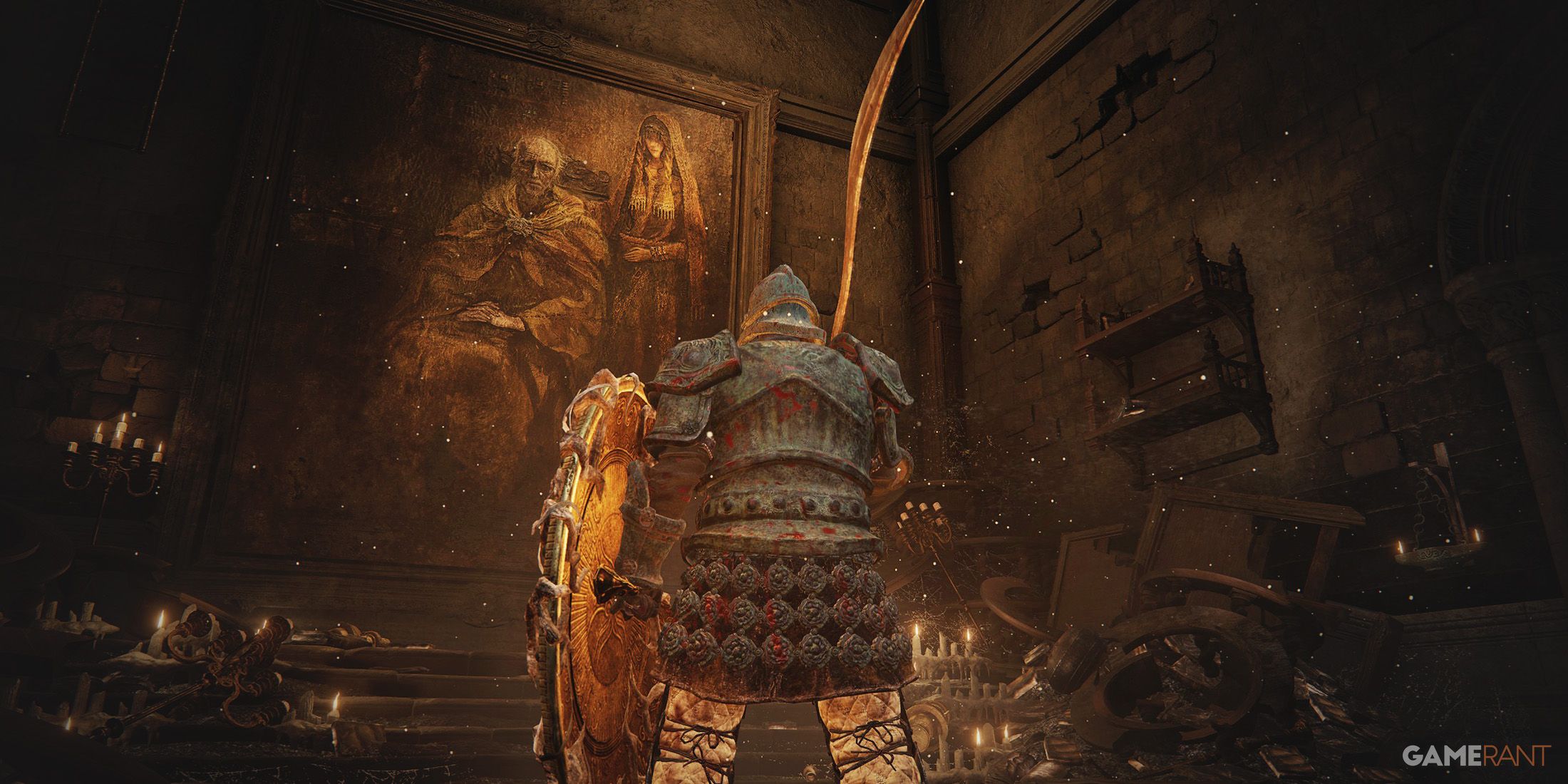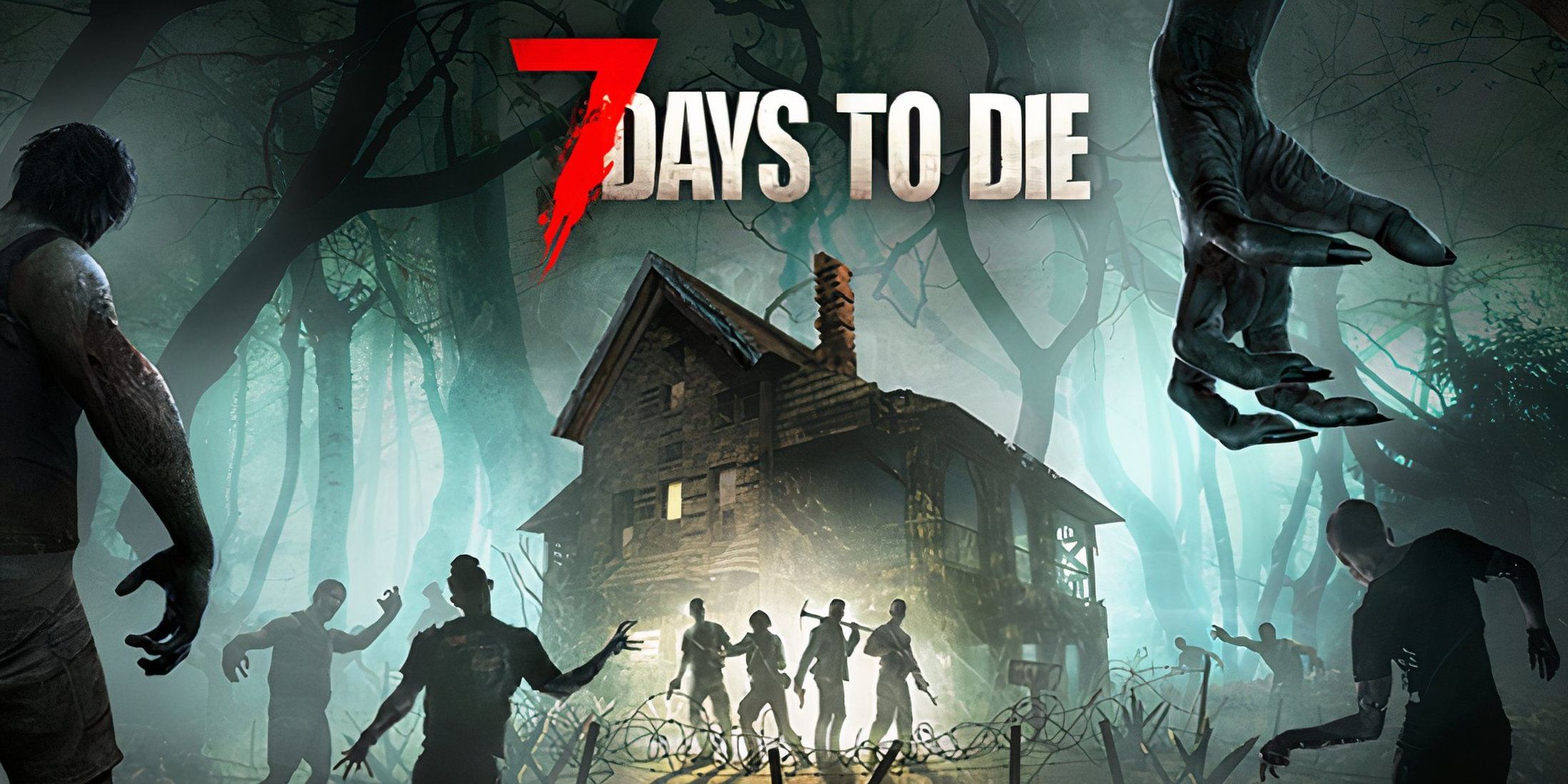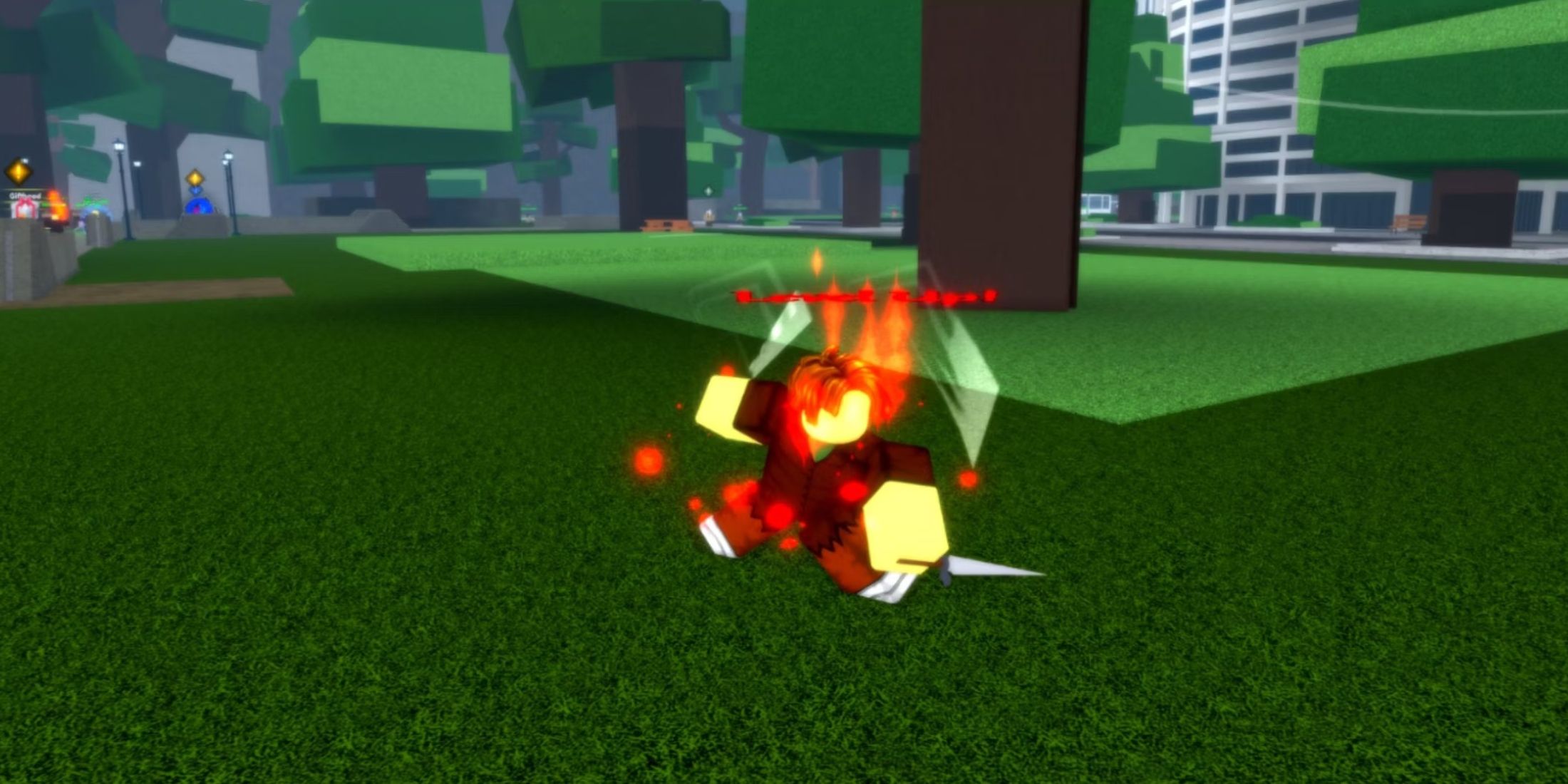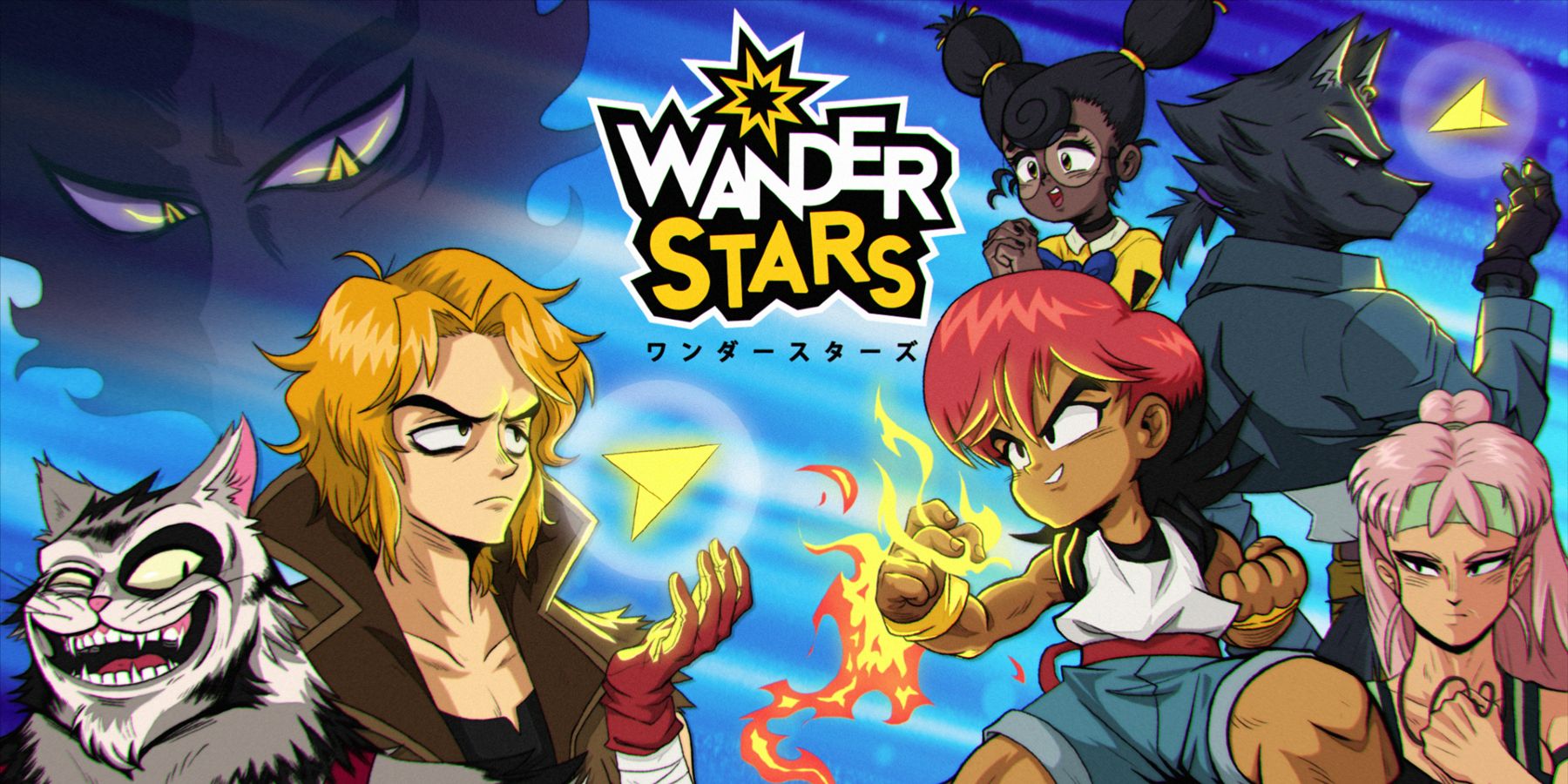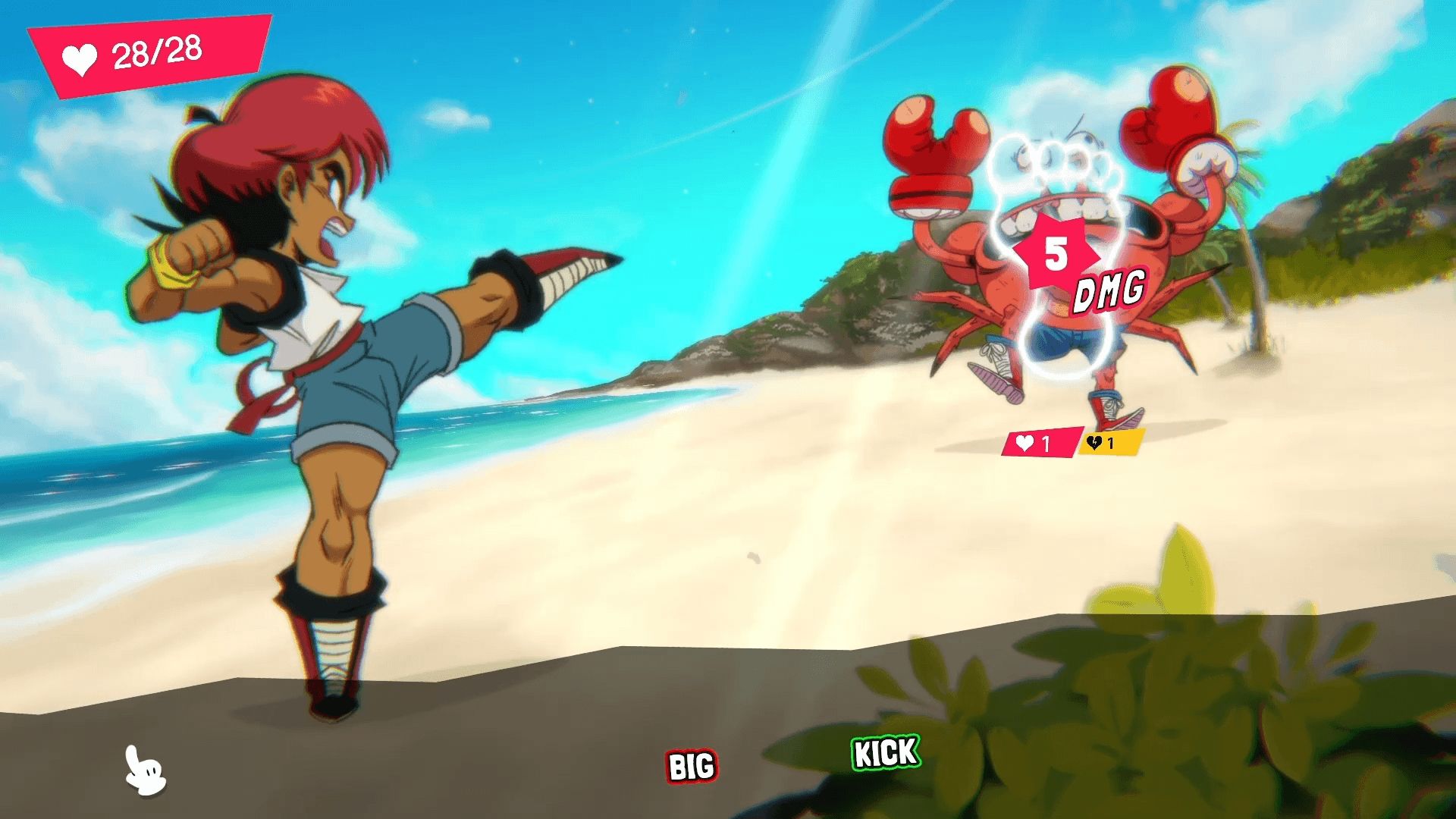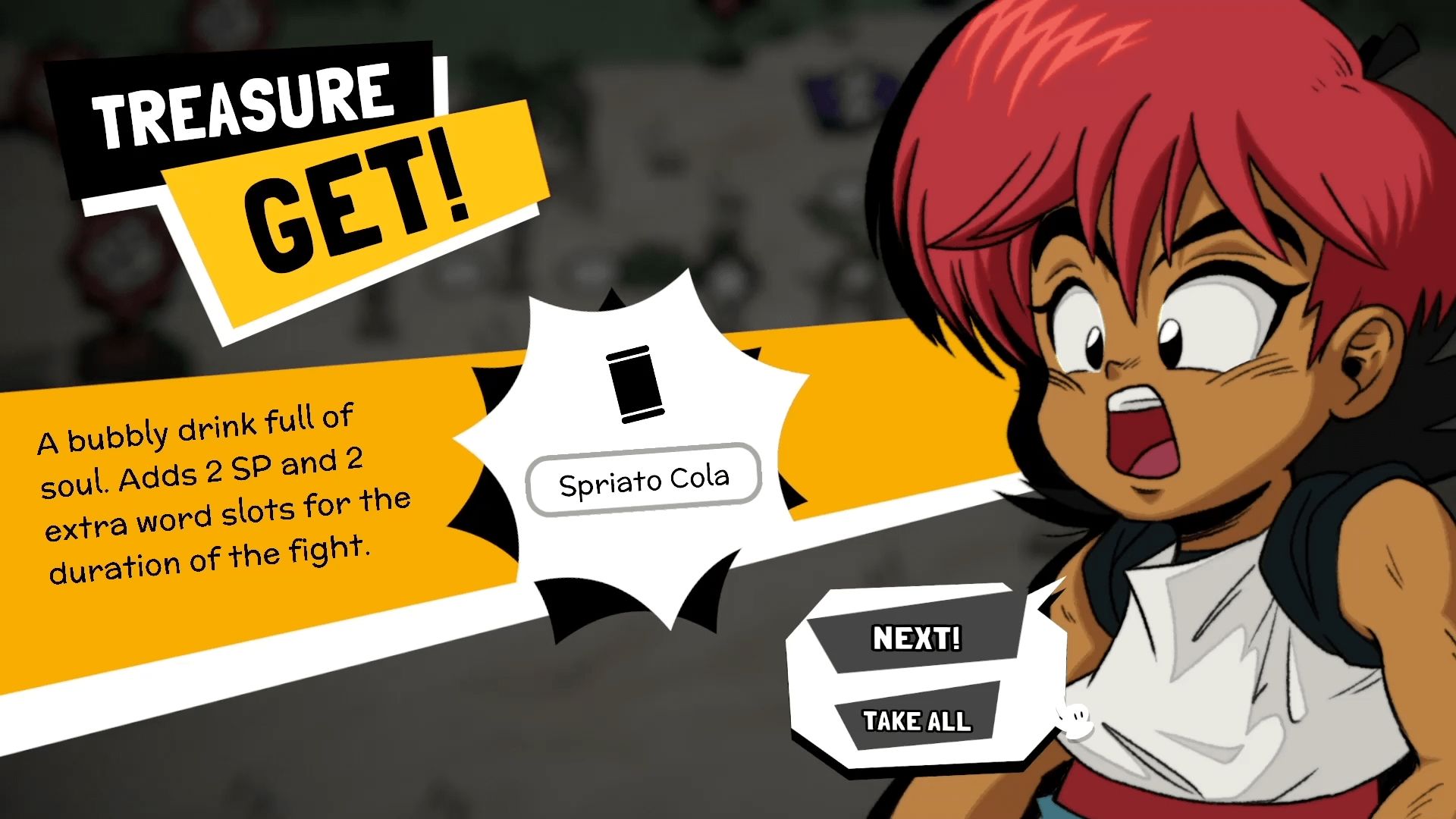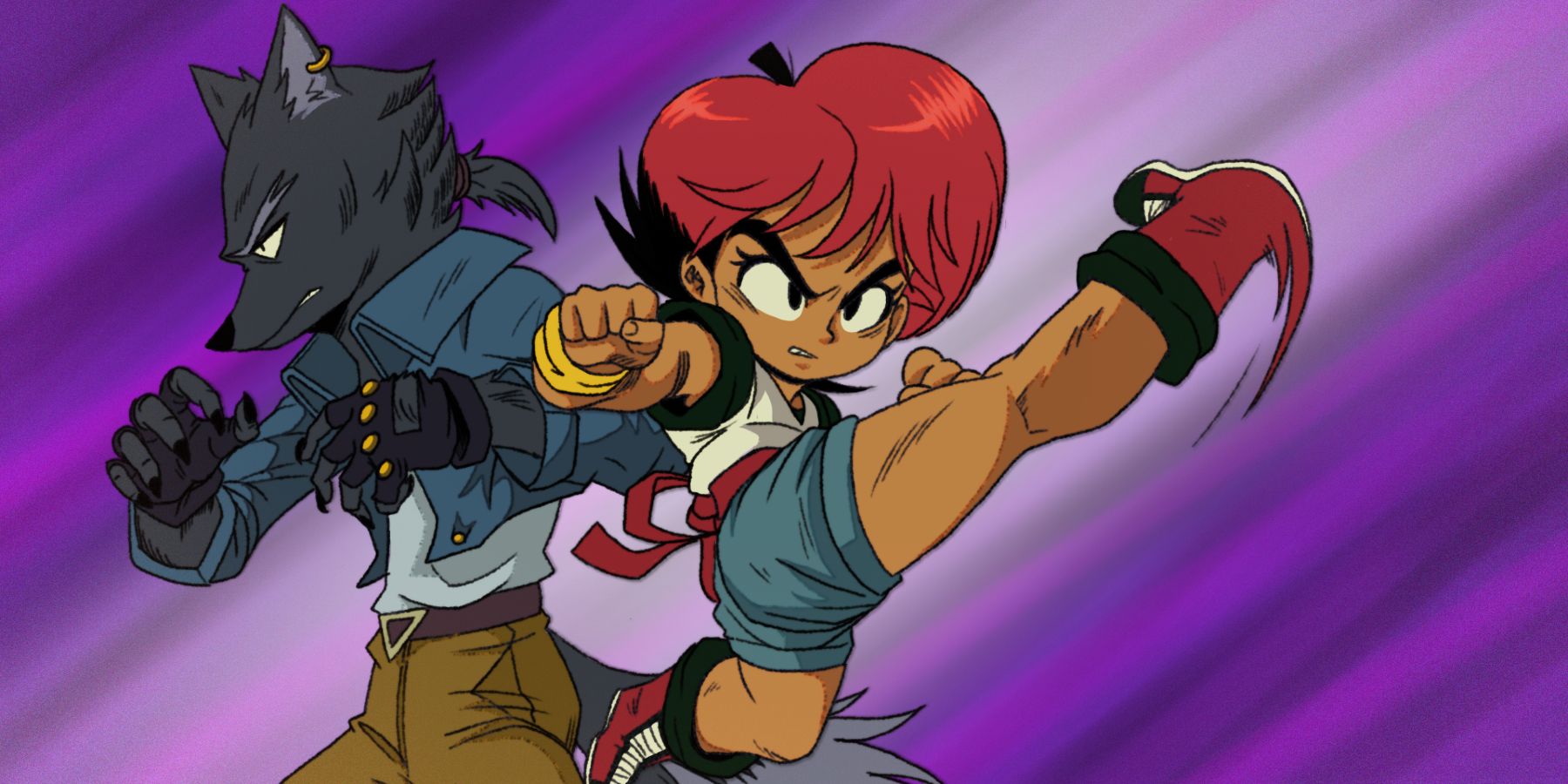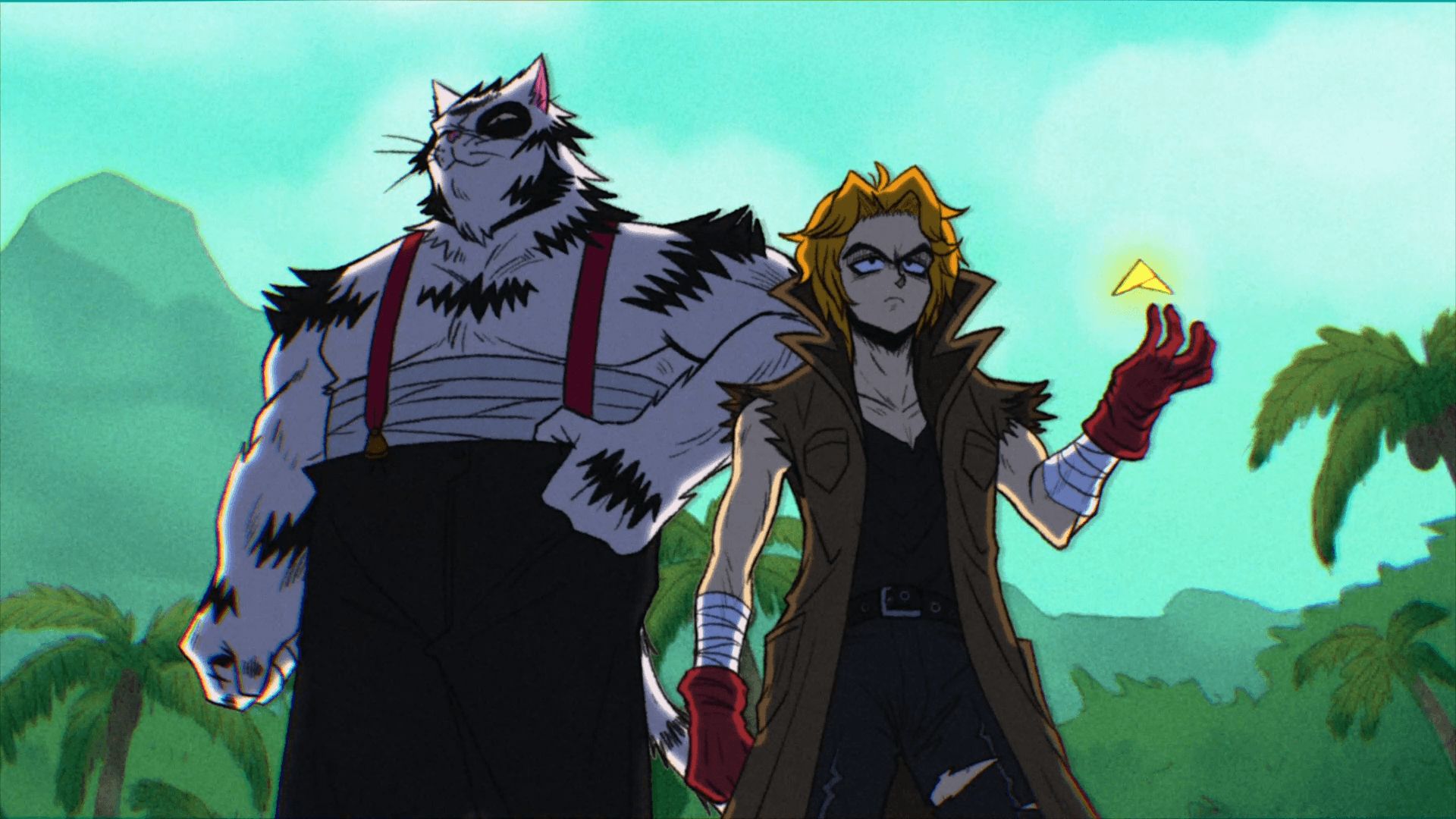Wander Stars is an upcoming turn-based RPG with a twist: players will be able to create their own attacks using a variety of words, ones they amass over the course of each roguelike episode. Battles will be like those in Pokemon, but pulling both aesthetic and mechanical inspirations from other 90s anime — namely Dragon Ball, according to Andrea "Andie" Gallo, lead writer and 2D artist for Paper Castle Games.
Game ZXC spoke to Gallo about Wander Stars' origins, its anime inspirations, and the game's battle system. Interview has been edited for clarity and brevity.
Q: How did Paper Castle get started? I understand you're a small team, were you all there from the beginning?
A: We're a team of four friends working remotely composed of Kay Dominguez, lead artist and game designer; Rafael Cabrera, lead programmer; Stijn van Wakeren, composer and sound designer, and myself.
Kay and Rafa have been friends since preschool. One day they were playing Castle Crashers and said, "Hey, maybe we could make something like this!" Thus Paper Castle was founded in 2013. I was there from the beginning as well, but didn't officially join until 2015 when Underhero (our first commercial game) started taking shape. Stijn also officially joined as Underhero's composer around that time.
Q: What was the impetus for Underhero's design once development got going?
A: Kay and Rafa actually worked on a couple of smaller games before getting started with Underhero’s development in 2014. Originally they wanted to make a more ambitious 3D game called Dreambound, but realized it was too much work and decided to switch gears to something more manageable. After that, Underhero was originally conceptualized as a mobile game, but after some trial-and-error it evolved into what it is today: a platformer RPG with timing-based combat.
Q: How challenging was it to put out that first game, and what was the reception like?
A: It was incredibly challenging not only because it was our first commercial game, but also because we were based in Venezuela at the time. We had to learn everything by ourselves and face all the usual problems first-time developers run into, but on top of that we had to deal with food shortages, power outages, several coup attempts, and countless protests. Things have gotten a little better in the past couple of years, but we still decided to move our studio to Spain for more stability.
Despite everything we went through, the reception for Underhero was amazing! It’s still hard to believe, but we’re very lucky that our game resonated with so many awesome people who are still supporting our projects to this day.
Q: How did that first project lead into Wander Stars? How long were you all working with the idea before production?
A: Kay came up with the main gameplay mechanic for Wander Stars during Underhero's development, but it wasn't until 2019 that we seriously considered working on it. This mechanic of combining words to make your own attacks immediately reminded us of the anime we used to watch as kids, where characters always call out their attacks with bizarre names. After that connection was made, we started working on concept art to try and define the look of the game, and eventually landed the 90s anime aesthetic that became one of the main features of Wander Stars.
Q: Which anime in particular helped inspire the game? For me, Ringo being a martial artist leads to some Dragon Ball comparisons.
A: I love that when we say 90s anime, we have so many unique styles to pick from. Dragon Ball was definitely our main inspiration, but we also wanted the art style to stand on its own, so we looked at other anime series like Sailor Moon, One Piece, Cowboy Bebop, Evangelion, and more to try and internalize this visual language so we could come up with something that looks different but still feels familiar. We hope that it reminds people of their old favorite shows.
This process has been very intuitive because we actually grew up in the 90s watching all these shows. Anime is huge in Venezuela and most Latin American countries because it was cheaper for television networks to get the rights compared to American cartoons. In my case I got to watch Sailor Moon on national television, which is awesome!
Q: On a similar note, how is Wander Stars' animation and art being put together? Does the game's core combat lead to a lot of extra work?
A: It does create a lot of extra work. The fact that all words can be combined created a ripple effect regarding all the assets that need to be produced. For example, the action word "PUNCH" needs to work not only for the player and opponents, but also when combined with all other elements and some modifier words — and that's just for one action! That’s why we had to get a bit modular with the visual assets to make everything work together.
Q: How much of an influence can players really have on the diversity of their attacks, and just how big a range of effects can one achieve?
A: The combat was conceived long before we started work on it, but the general idea was to make a battle system similar to Pokemon, just using words to make your own moves. We like to say this game is similar to Pokemon, but instead of fighting monsters you fight the trainers.
The game has a randomization factor that lets you collect lots of different words during a run, and it is up to the players to decide how to combine their current words to solve problems. Wander Stars currently has 250+ words, and we’re constantly adding more while tweaking others to make the gameplay more diverse. It’s really hard to say how many different combinations there are at this point, not to mention that the order of the words also affects the end result, which means one combination could have more permutations.
Q: It seems you're a bit of a proverbial renaissance man, Andie. On top of video games you've also done children's books, tabletop games, traditional animation, and more. What kind of lessons have you taken from those experiences?
A: Well that's mostly because I had no idea of what I wanted to do. The work I did for animation directly translates to Wander Stars in particular because we want the game to look like an animated series, so it’s a perfect fit.
Q: What led you to become an artist in the first place?
A: I actually wanted to be a journalist! I went to school for journalism for two semesters and then decided to switch my major to art and graphic design. I love writing, but switching to art was probably the best decision I’ve ever made. My grandmother is an oil painter and I’ve loved drawing since I was a kid, so when I was unsure about my career I decided to switch to the one thing that felt natural. Before that, it never occurred to me that I could be a professional artist.
Q: Some of your other interests are writing and music, how have those played into your work on Wander Stars?
A: Well, my love for writing plays directly into my work for Wander Stars since I’m the lead writer! Music is more of a hobby for me, but I’ve definitely written a couple of cheesy guitar songs inspired by the game that will never see the light of day.
Q: Wander Stars is described as an RPG with roguelite elements. How have you balanced those seemingly opposing ideas?
A: A lot of roguelites are commonly associated with progression systems very in-line with classic RPGs. In the case of Wander Stars there is a progression system, but there’s more to it than improving stat numbers.
We're building each episode of Wander Stars with the intention of making the player feel stronger by the end of the run, which is the main theme of most shonen anime and manga. To that end, players will start every episode with a small number of words (of their choosing) and basic stats, and by fighting and exploring they will improve a great deal by the end. Even if they fail the episode, they can use the honor points earned during that attempt and spend it on permanent power-ups or even permanent words that you can equip at the start of any episode.
Q: With regards to those episodes, how much of a story is there going to be in Wander Stars?
A: Wander Stars has a full story with character arcs and an overarching plot that spans 10 episodes, so I would say there’s a lot of story. On top of that and precisely because of the roguelite elements present in the game, we also have special events and little adventures that can happen at random — which are basically like anime filler episodes. Once you’re done with the main story you can always replay any episode to find these events for more character interactions, backstories, and lore.
Q: This game seems like a big departure from Underhero, so what was it like shifting gears to work on it?
A: It's not that different to be honest. We’re still making an RPG with interesting characters and a story full of surprises. The art is not pixel art but we’re actually more comfortable with this new style thanks to our animation background. We’re applying more of our strengths this time around, which is very exciting!
Q: Why are you taking Wander Stars to Kickstarter? Did you learn anything from working on Underhero that influenced this decision?
A: Having an excited community of people is what makes or breaks any game, and Kickstarter not only helps you connect with that potential audience, they can also help you fund development and even become a part of the project.
Underhero was created under different circumstances. Most of us were still in school and we worked on the game during our spare time. We decided we needed a different approach for Wander Stars not only to make the best game we can, but also to grow as a studio and as professionals.
Q: What are you hoping to do with the money you'll be raising? How big of a goal do you want to hit, and are there rewards or stretch goals planned?
A: Fund development of course, which means making enough money for our living expenses until the game is complete so we can keep working on it full-time. We hope to make enough money for that, and if we can raise even more we would love to expand the game’s content with free DLC like extra episodes and other big surprises!
Q: What is the Spanish development scene like, in terms of either AAA or indie games. How has it influenced your team's work?
A: We’re not very active in the game development scene, to be honest, and the COVID-19 pandemic happened a few months after we moved to Spain so we haven’t had much opportunity to experience it. It’s hard to go out there and make new dev friends.
Q: Is there anything else you want to add?
A: If you want to support Wander Stars, follow our Kickstarter campaign to get notified when it goes live. Also follow and wishlist Wander Stars on Steam! Thank you so much!
[END]
Wander Stars is currently in development for PC and Switch, with a Kickstarter campaign planned for the near future.
Sources: Kickstarter, Steam

